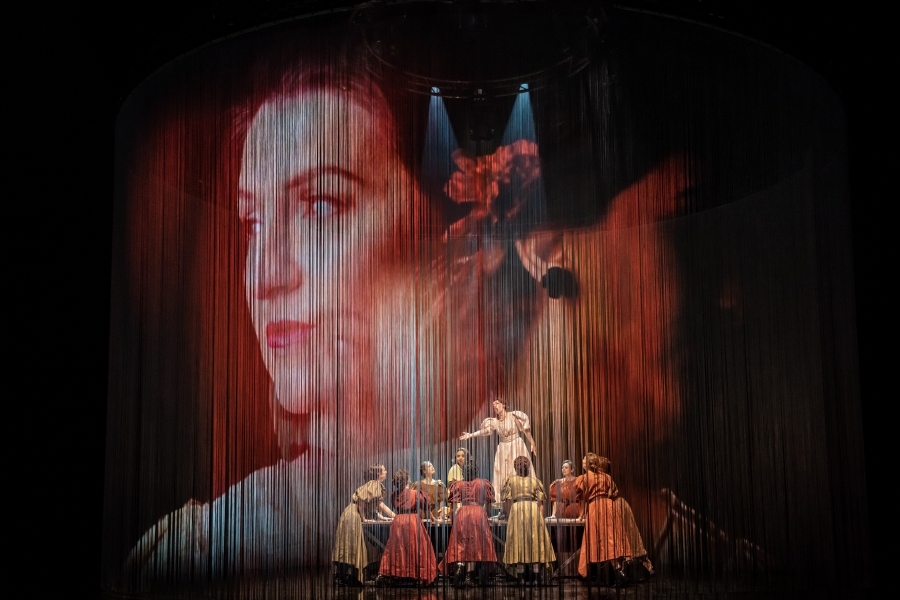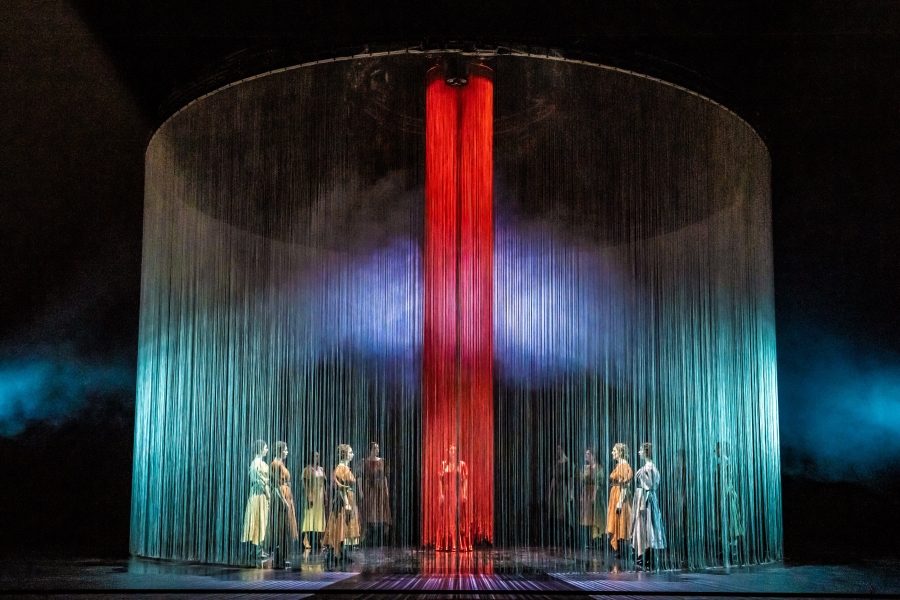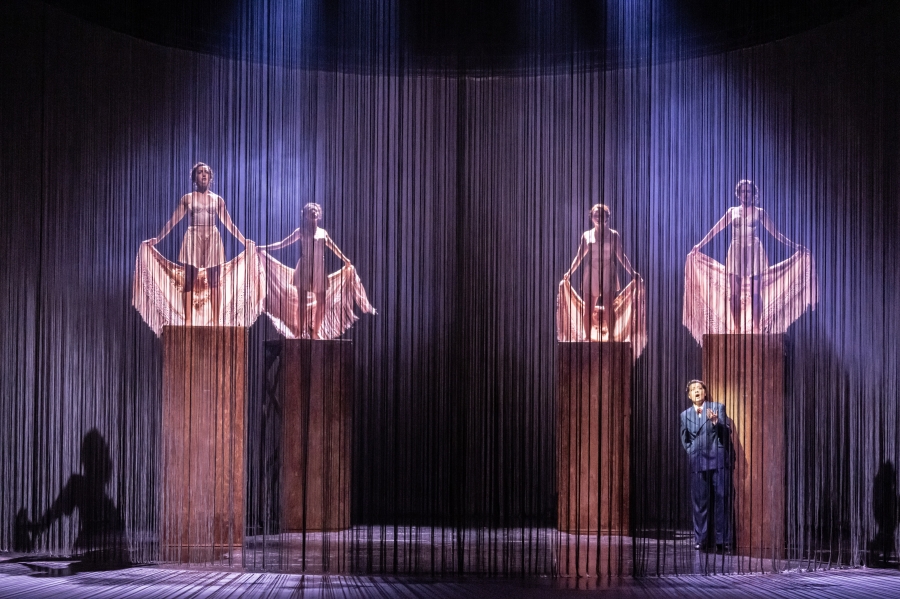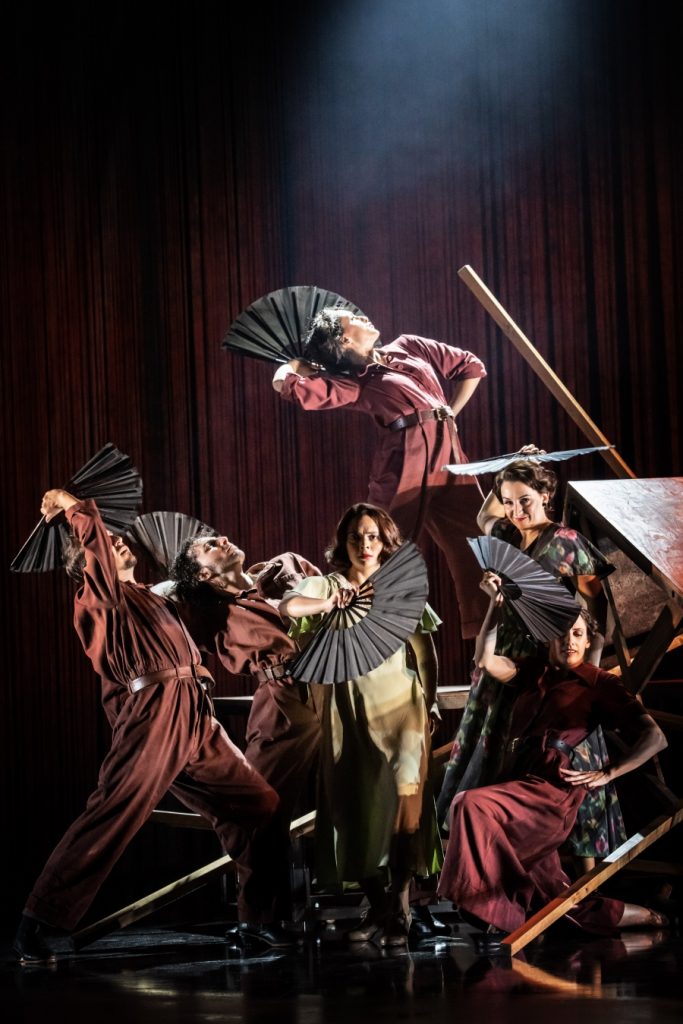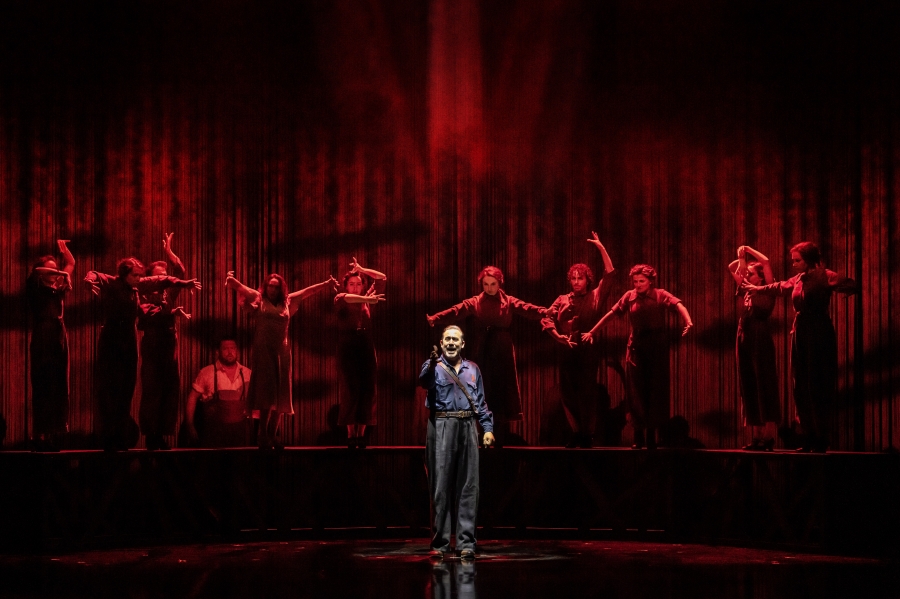The WNO chose to open its Autumn season for this year with something a little out of left field, treating its audience to a production of Argentine composer Osvaldo Golijov’s Ainadamar, a work recounting the story of the assassination of Federico Garcìa Lorca, as seen through the memories of actress Margarita Xirgu, who worked with him and was regarded as his muse. The one-act opera is an interesting experiment drawing inspiration from Spanish traditional folk music, the features of which are integrated with more traditional operatic singing to create a highly emotional, immersive piece. Flamenco dancing animates the performance of the ensemble, and a clever stage design in which animated visuals are projected onto a circular curtain encompassing the action adds another layer to what was already, by its own nature, a strongly atmospheric work. It is the kind of work, indeed, that could not function with a break between acts, because immersion is what propels it, the thing it draws its power from: once the audience has taken the plunge and is inside the opera, its dream-like (and, in places, nightmare-like) quality subsumes everything else, and it is not possible to pause and catch your breath until the very end.
Jaquelina Livieri
It is an experimental work in the form it chooses to take, in the way it integrates the sinister radio recordings of the time, and in its devotion to the folk music that provides the backbone for its composition; indeed, if ever Ainadamar slows down and becomes less compelling, it is when it attempts to be more of a traditional opera. The traditional operatic singing loses something of the strength and poignancy of the less conventional parts, which have a peculiar, raw energy channelling the primal elements of folk music into something that is all the more striking because of the very deliberate cracks in its exact delivery. Conversely, when it leans without second thought into its traditional music roots, the production delivers some of its most intense moments. The stage visuals play strongly into this: the oniric quality mentioned above exists already in the composition, and the design of the visuals plays along with it, delivering some moments that are almost like something out of a David Lynch movie: disturbing, rarefied, and vaguely surreal.
Hanna Hipp
The all-too-recent Fascist past of Spain is a page of that country’s history that is still often shrouded by silence, perhaps precisely because it is so recent, and therefore so raw. Garcìa Lorca, with the lyrical beauty and emotional depth of his writings (which provide the backbone to more than one of the best moments in this opera) and his tragic personal story, is a perfect conduit to explore it, and Ainadamar does so in a way that chooses the language of dreams to better convey the starkness of reality. Nothing is glossed over, there is no room for euphemisms; even the colours in the costumes – red dominates, almost always – are a callback to the raw, difficult feelings underpinning this work. High emotion is what makes Golijov’s music vibrate, when it is at its best, and even in the quieter moments there is a barely subdued, underlying energy carrying the story inexorably forward. Director Deborah Colker understands the essential nature of the interplay between music, acting, and dance in this work, and guides her cast into a performance that blends the three together in a single expression of visceral emotion. Jaquelina Livieri’s performance as Margarita is notable for how nuanced and deeply human it is, but the true protagonist is really the ensemble, and what lingers the longest, after the opera is over, is the disquieting beauty of the choral scenes.
Julieth Lozano Rolong
It is a work loyal to the spirit of the writings of Garcìa Lorca, raw in its exploration of a painful moment of the history of a country, deeply aware of the disturbing nature of beauty and deeply artistic in the language, musical and visual, that it adopts. The links it maintains, here and there, to the stylings of traditional opera are truly the only things still holding it back; when it forgets they are there, Ainadamar soars – living its audience with a deeply emotional experience.
Alfredo Tejada
Further performances at Wales Millennium Centre September 17 and 26 and then touring until November 22.
Main image: Jaquelina Livieri
Images by Johan Persson
OperaScene.co.uk review:
